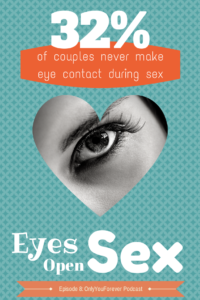
When Others Don’t See Your Spouse as Abusive
When a spouse is being abused, one of the challenges they may have to face is that other people around them may not believe that they are being abused. When this happens, there are even fewer resources available to empower the person experiencing the abuse. Let’s look at how this happens and then what to do about it.
We wanted to bring this topic forward today because social support is a vital support for helping women recover from all forms of abuse[i]. However, when a woman is in a genuinely abusive situation and her support network do not understand the severity of the problem, then she feels even more isolated and stuck in the abusive relationship[ii].
Often the abuser is pretty slick and he has maybe convinced others — even her own family — that’s she’s having mental health issues or is just not stable or not rational. So you can imagine how profoundly trapped a woman might feel in this kind of situation. It really shakes her core sense of reality and truth.
We hope that with this episode you’ll have some real clarity and also a bit of plan for how to navigate your way through this.
What Is Emotional Abuse?
We have covered the definition of abuse before, but a quick review of the main factors of emotional abuse is in order[iii]:
-
- Threats: these can be overt threats to harm you, your children or your family in any way. It includes threats to withhold basic needs: food, healthcare, financial support, safety, etc.
- Control: control or placing restrictions on your life. This could include things like depriving you of sleep, denying you access to friends, support, money, food or transportation.
- Destabilization: ongoing intimidation, insults, degradation or trying to convince you that you are inferior and undeserving of better treatment.
One-off instances of these behaviors are not necessarily a sign of emotional abuse. A study from 2013[iv] states that for these actions to cross over from bad marital behavior to abusive behavior then it must reoccur repeatedly, without the abuser showing any sign of responsibility for or awareness of the issue.
Common Mistakes Others Make
Even counselors may not always see the abuse for what it is. A study from 2010[v] gives a helpful list of reasons why therapists may miss identifying abuse, and these are reasons that other people in your support network may be prone to as well:
-
- Failing to recognize that emotional abuse is an act of violence just as physical abuse is.
- Not having an understanding of patriarchy, power and gender can lead to blindness toward abuse.
- Holding you in any way responsible for your husband’s pervasive pattern of abuse
In the context of helping someone see the abuse you’re experiencing, you may need to educate them on one or more of these issues. Referring them to articles such as ours on abuse, or giving them good books such as “The Verbally Abusive Relationship” by Patricia Evans or “Why Does He Do That?” by Lundy Bancroft may help them begin to see the issue.
On the other hand, if you come from a family where all of the men operate in a patriarchal mindset it may be impossible to involve them as resources in your support network. Instead, you may choose to turn to others who already are better prepared to understand the abuse and confront it alongside you.
Why Do Others Not See the Abuse?
They Only See the Good
Abuse normally occurs in a simple cycle. You have a period of abuse followed by reconciliation and then a honeymoon period where the abuser is especially kind and loving. Since the actual abuse is normally only done in private, other people only see the honeymoon phase where the abuser appears to be a perfect, even doting, spouse[vi].
Mind Games and Justification
Abusive husbands are often very good at belittling their spouses, damaging their self-esteem and convincing them that the abuse is their own fault. Abused women can often be so disoriented by suffering abuse from the person they love that they end up rationalizing or justifying the abuse they receive (“Was it really as bad as I imagined?” or “He would never do anything to upset me unless I provoked him” etc).
It may be that you have found yourself collaborating with your husband to minimize what you are experiencing[vii]. This is linked to the idea of trauma bonding, which we looked over in a past episode.
The Stigma of Abuse
Being in an abusive marriage is a hard thing to admit to. Many abuse survivors are ashamed of their situation and do their best to cover it up[viii]. This means that when/if they do open up about it to friends and family, other people have a hard time believing it since it appeared that everything in the marriage was fine.
On the flipside, it can be a hard thing for friends and family to face up to as well. Many societies and cultures still view abuse as a personal and private matter which should not be addressed in public[ix]. Someone you know being a victim of abuse is a hard thing to have to confront, so families and friends may unconsciously justify, minimize or rationalize the abuse rather than face up to a difficult situation (“they just had a fight” “She must be exaggerating” etc). Abuse is such an ugly thing that sometimes everyone involved will work overtime to deny that it is happening.
Isolation: They May Not See It
Social isolation is often a part of abuse. The abuser may limit the abused spouse’s contact with friends or family[x], or only allow them to see friends/family as a couple, which can make talking about the situation harder. Also it may not even give others the chance to see any evidence of what you are experiencing.
Misunderstanding Abuse
Many people hold the view that abuse is always physical. Getting friends and family to recognize emotional abuse may be hard as it goes against their understanding of what abuse is[xi].
You get the classic question, “Well, has he ever hit you?” And when you say “No”, it is easy enough for them to say, “OK so you are safe then.” And what do you say next? Ideally, you would say that you are safe physically but you are not safe emotionally.
What To Do About The Abuse
There are a number of things you can do to face the reality of the abuse, empower yourself, and help others to see what is going on so that you can involve them in supporting your journey of recovery from abuse.
Document or Journal the Abuse
Some women find that keeping a written record of their husband’s abuse is helpful[xii]. Keeping accurate records of what happened and when and even identifying the patterns of abuse helps you to see the severity of the problem over time. It can also be used to counter your husband’s attempts to deny or minimize the abuse when seeking help.
Figuring Out Who To Talk To
If you’ve decided to reach out to someone about your situation, it’s worth thinking carefully about who you talk to. A study from 2000[xiii] interviewed 31 women who were either currently in abusive marriages or had left them about who they turned to for support, and how helpful that support was. They found that confiding in a few close female friends was often the most helpful strategy.
All of the women who reached out to a girlfriend reported that it was extremely helpful in terms of practical support, emotional support, and helping to clarify and get some distance from the issue.
Many women confide in a single trusted friend who then acts as a supporter or facilitator in helping the abused women receive support and confront the issue. Having this kind of friend on their side helped to convince the abused women that their problems were real and buffered them against rationalizing or explaining the abuse away[xiv].
The same study also found that talking to professionals was often very helpful. Women who sought help from social workers, counselors or church leaders found that this enabled them to understand that the abuse was not their fault and helped them develop a plan of what to do. Again, you just want to make sure that whichever type of person you talk to: they need to have a basic understanding of abuse.
Talking to family members was much more mixed. Some women found that talking to their mothers, siblings or even parents in law was helpful, while some did not. There was no clear pattern as to which family members are best to talk to, suggesting that it is mostly down to your individual relationships within the family and that particular family member’s ability to make sense of the issue and respond appropriately.
Find Fellow Survivors
Talking to other women who have been through abuse was often found to be very helpful in clarifying the situation and deciding what to do. Talking to someone who understands the cycle of abuse and the blaming/mind games that can occur enabled women to take the next step to seek professional help[xv].
Support groups for abused women were also found to be good sources of emotional support and guidance[xvi]. Definitely, something to explore and see if one is available in your area.
Faith Is Valuable Even When All Else Fails
Several studies[xvii] report that faith and prayer were helpful tools for women suffering from loneliness and alienation due to emotional abuse. Even when other people refuse to see the abuse or are unable to help, prayer and connecting with God still helped these women cope with their circumstances and reduced the loneliness they were experiencing. Even if you’re not sure where to start or what to turn to next, the Lord is near to those who have a crushed spirit.
References
[i] Rose LE, Campbell J, and Kub J, “The Role of Social Support and Family Relationships in Women’s Responses to Battering,” Health Care for Women International 21, no. 1 (February 1, 2000): 27–39.
[ii] Mieko Yoshihama, “Breaking the Web of Abuse and Silence: Voices of Battered Women in Japan,” Social Work 47, no. 4 (October 2002): 389–400.
[iii] Diane R. Follingstad and Dana D. Dehart, “Defining Psychological Abuse of Husbands toward Wives: Contexts, Behaviors, and Typologies,” Journal of Interpersonal Violence 15, no. 9 (2000): 891–920.
[iv] Leslie Vernick, The Emotionally Destructive Marriage: How to Find Your Voice and Reclaim Your Hope (Colorado Springs, Colorado: WaterBrook Press, 2013).
[v] Patricia Evans, The Verbally Abusive Relationship, Expanded Third Edition: How to Recognize It and How to Respond, Third edition (Avon, Mass.; Newton Abbot: Adams Media, 2010).
[vi] D. G. Dutton and S. Painter, “Emotional Attachments in Abusive Relationships: A Test of Traumatic Bonding Theory,” Violence and Victims 8, no. 2 (1993): 105–20.
[vii] Vera George, “Traumatic Bonding and Intimate Partner Violence,” 2015, http://researcharchive.vuw.ac.nz/handle/10063/4398.
[viii] George.
[ix] Yoshihama, “Breaking the Web of Abuse and Silence.”
[x] Maureen Outlaw, “No One Type of Intimate Partner Abuse: Exploring Physical and Non-Physical Abuse Among Intimate Partners,” Journal of Family Violence 24, no. 4 (May 2009): 263–72, http://dx.doi.org/10.1007/s10896-009-9228-5.
[xi] Yoshihama, “Breaking the Web of Abuse and Silence.”
[xii] Yoshihama.
[xiii] Rose LE, Campbell J, and Kub J, “The Role of Social Support and Family Relationships in Women’s Responses to Battering.”
[xiv] Maggie A. Evans and Gene S. Feder, “Help-Seeking amongst Women Survivors of Domestic Violence: A Qualitative Study of Pathways towards Formal and Informal Support,” Health Expectations: An International Journal of Public Participation in Health Care and Health Policy 19, no. 1 (February 2016): 62–73, https://doi.org/10.1111/hex.12330.
[xv] Evans and Feder.
[xvi] Yoshihama, “Breaking the Web of Abuse and Silence.”
[xvii] Yoshihama; Ami Arokach, “Alienation and Domestic Abuse: How Abused Women Cope with Loneliness,” Social Indicators Research 78, no. 2 (September 1, 2006): 327–40, https://doi.org/10.1007/s11205-005-1603-x.
Podcast: Play in new window | Download

Thanks for listening!
If you found this episode helpful, don’t forget to subscribe, leave a review, and share it with someone who might benefit.
Let’s keep the conversation going—because growth starts here!
Need Support Now?
Talk to Someone Today





